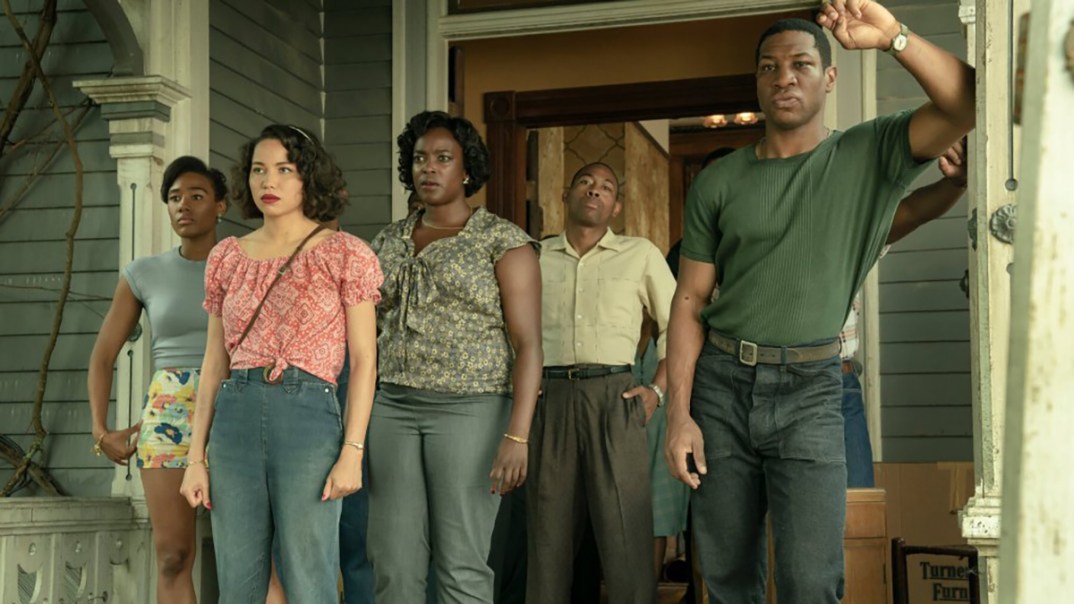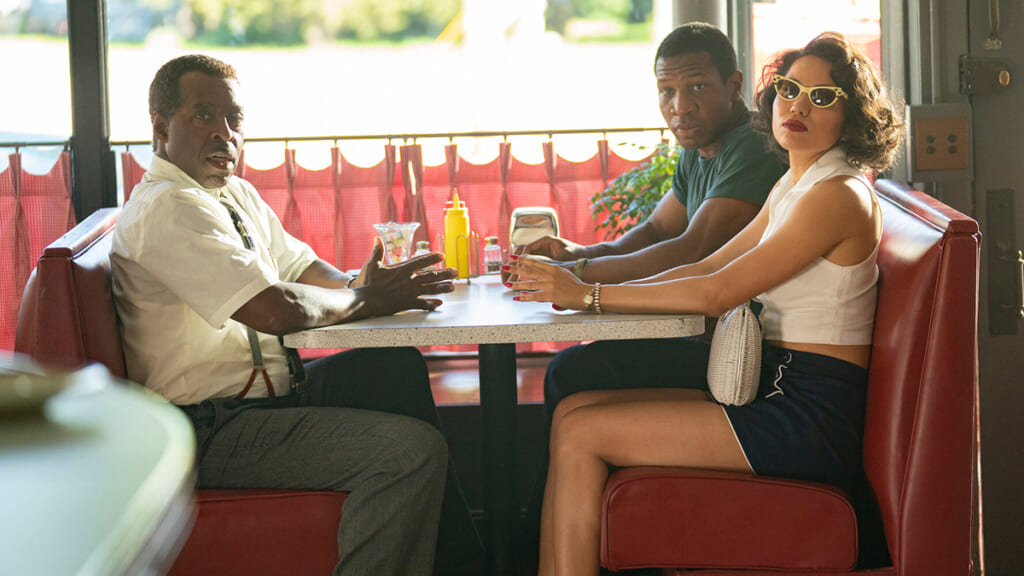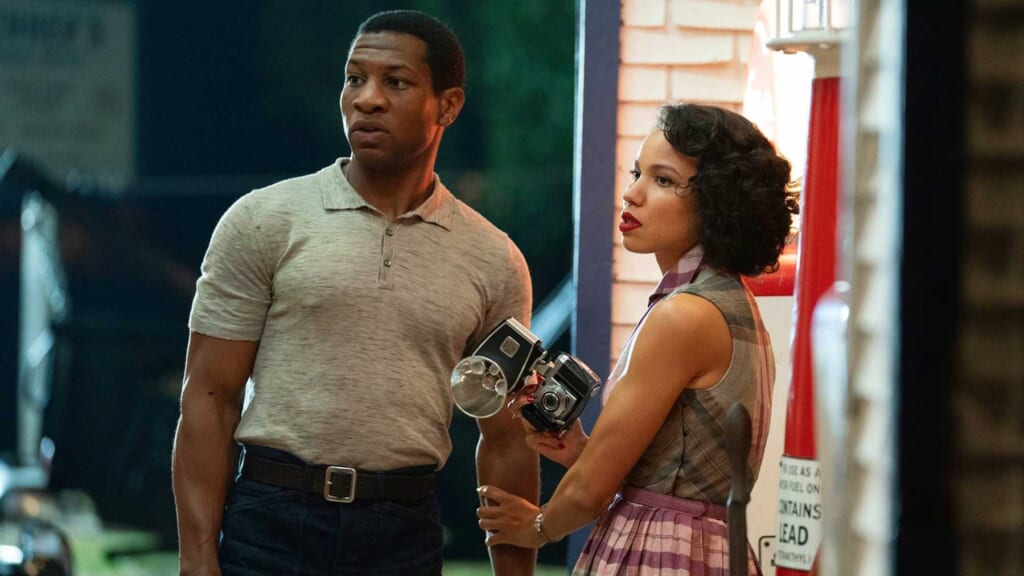Why ‘Lovecraft Country’ is exactly the show Black people needed
OPINION: On Sunday nights, the future and past merge into one seamless exclamation of Black excellence on 'Lovecraft Country'

There’s a running joke about how difficult it is to explain Lovecraft Country to non-watchers. It’s probably more truth than joke. We stumble through genres — Sci-fi. Horror. History. Fantasy — trying to find the perfect fit. Never succeeding. When in actuality, Lovecraft Country is its own genre. It makes us smile, cry, laugh, cringe, rejoice. A range of emotions. So at the end of the day, we honestly don’t care what category it falls in. Because we know how it makes us feel.
Powerful. Majestic. Unbeatable.
This show plows through us with a tsunami of themes, images, and feelings that simultaneously transport us to the past and future and eventually leave us in a space where time is only a figment of our imagination. Energy is all that is. On Sunday nights, the future and past merge into one seamless exclamation of Black excellence. In this way, Lovecraft Country is visual poetry.
Read More: HBO hosts epic ‘Lovecraft Country’ finale event in Los Angeles
With daring gusto, this show honors our collective heritage in a beautiful way. Watching feels like a small historical redemption of sorts. Each scene is pregnant with new possibilities for a more just future. A more righteous ending. It tells a story that our ancestors couldn’t finish in their lifetime. It pulls the magic from their spirits to birth the heartbeat of a new story. With an ending that has yet to be written.
For Black people, honoring our history has always been an emotional battle. Our story is filled with unimaginable horror. The emotional weight of that can often be heavy, and sometimes we look away. We focus instead on things that feel good and uplifting because we know that our hearts cannot survive on sorrow alone. We need hope.
Lovecraft Country is history and hope all in one. It honors the struggle of our past and allows us to visualize a new future in the same breath. One that reiterates that we are a capable people. Capable of saving ourselves. Capable of climbing out of a tragedy that we never asked for. Never deserved.

This type of visualization is important. The imagery and symbolism in this show is so crucial. We’ve seen ourselves beaten more times than we care to count. Seeing ourselves rise above is its own type of vibe. It’s a truth we know is possible. So the imagery instantly has a home in our hearts. In this show, we see and recognize… us.
We recognize our spirit, an energy that never dies. Warrior energy time traveling through our DNA. ‘The Souls of Black Folk.’ Even in death, our spirit has never, and can never, be broken. That energy makes its presence known in every episode. We see Hippolyta travel through the universe and recognize that same self-defining energy in us. We see Tic push forward for solutions despite a certain death and recognize that same determination in ourselves. We see Dee having the audacity to look terror dead in the eye and do everything she can to save herself and we recognize that same tenacity in us. Lovecraft Country captures the essence of the most intangible parts of our being.
It captures our mothers. In all their glory. Our Hippolytas, Hannahs, and Hatties who will drain themselves of energy, run pregnant to freedom, and stand firm in faith as the world burns around them just to ensure that their babies (and their babies’ babies) see tomorrow. In them, we see every Black mother who ever loved. Every Black mother who ever sacrificed. “When my great, great grandson is born, he will be my faith turned to flesh.”
Great Grandma Hattie’s words are the sentiments of all of our grandmothers and great-grandmothers who made it through the middle passage, slavery, and Jim Crow, all the while knowing that their fight was not for their own benefit, but for that of future generations of unborn children. Time after time, Black mothers have been the glue of our communities, and this show honors that. In these mothers, we see our own.
All of the show’s female characters are powerful. Black women are not depicted as wallflowers in this show. We are seen as enchanted gardens — full of flowers and fruit that provide sweetness and nourishment but that also contain vines and thorns that will spring up and choke you if need be. These female characters embody the fullness of womanhood.
Through them, we are able to see ourselves celebrated as heroines and not simply one-dimensional stereotypes. These women are soft, strong, smart, sweet, angry, kind, scared, brave, outspoken, silent, bold, cautious, leaders, followers, enraged, and joyful. All at once. They do not fit into a man-made box. They let it be known that Black women embody all things.
It is with these women that the show also shines a light on the faux feminism experienced by many Black women through the likes of a Christina. Her character symbolizes that segment of feminism whose interest in dismantling patriarchal systems goes only as far as it moves White women up a notch on the ladder.
These Christina-ites among us use Black women, just as Christina uses Ruby, in the name of sisterhood, to do their bidding. This faux feminism isn’t concerned with how racism overlaps this already busy highway of sexism and impacts the larger picture. It is a selfish kind of feminism only available to White women. This show delivers that message in no uncertain terms, and underscores the point with the finale.
In that way, Lovecraft Country is unapologetic in how it shows the reality of the problems many Black people have experienced at the hands of White people. It guts open history and puts the terrorism of White supremacy on display for all to see. With no disclaimers.
In America, we like to pretend that this large-scale terrorism at the hands of White terrorists never happened. That it’s not happening. This show doesn’t pretend. Bullets through windows. Reality. Black bodies snatched for medical experimentation. Reality. Tulsa, 1921. Reality. It’s history, and it makes its viewers deal with it.
These 60 minutes are everything. In it, our anger for these injustices is vocalized. Our rage is validated. But our hope can also be reborn. In a way, it’s therapeutic. Spiritual even.

Lovecraft Country brings Black spirituality to the forefront. Whether that spirituality be found in church, through ancient African rituals, or through just an inner-knowing and belief, spirit is invoked in this show in ways that honor this cornerstone of Black expression. Black people have always known and leaned on God, and this show respects that.
From Leti calling upon ancestral names (#saytheirnames) to cast out evil, to her slipping into scripture before running into a forest full of monsters, the preeminence of spirit is sewn into so many moments of this show. As a people, we have always believed in more. We have never accepted that our painful process was our final destination. Even when impossible was our only option, we believed. In something. In spirit. “We walk by faith, not by sight.”
It is through this faith that the seeds of new love continue to be planted in our communities. We believe in tomorrow, so we create it today. In Lovecraft Country, we get to see the power and beauty of this love as it blossoms between Leti and Tic. A kind of love that rises to the surface finding new ways to exist despite never having seen the love it’s trying to create. In this plight, Tic and Leti are like so many Black couples. Byproducts of homes broken apart throughout history by force but glued back together in the present by love. Sweet love. Purposeful love. Love that could make one lay down his life so that his family can be born.
In his mother’s words, Tic finds the courage to be the bridge between the past and the future. “If we ain’t walkin’ towards an altar to sacrifice ourself for something important, what is our purpose?” In death she teaches him that he is more than his flesh. Her existence and his is eternal. The intention to exist and bring forth goodness is what brings value to that existence.
Read More: ‘Lovecraft Country’ most watched HBO digital premiere since ‘Watchmen’
Through Tic, Lovecraft Country represents some of the best of Black manhood. He is unyielding in his efforts to protect those he loves. His dedication to the cause of family knows no bounds. He is stubborn and quick-tempered, but always with good intention. In him, we see the journeys of so many Black men who are processing trauma but still striving for better. With each step, Tic chooses better. In the end, his selflessness creates a world of possibility for those that follow.
This possibility is the foundation of what makes this show such a needed experience for Black people. Lovecraft Country reminds us that while each generation may walk into this new world alone, we are not alone. We have a lineage that walks with us. Unseen. Unheard. But ever present. And when we decide to tap in to this strength, we, like Tic, set the stage for the pages of history to turn.
Have you subscribed to theGrio’s new podcast “Dear Culture”? Download our newest episodes now!
TheGrio is now on Apple TV, Amazon Fire, and Roku. Download theGrio today!
